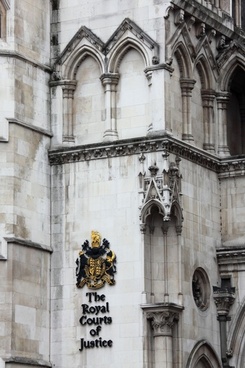RULE – Required element of knowledge of illegal use and intent to further that use

·
1-
Knowledge is a question of fact
·
2-
Intent: Requires either direct
evidence or circumstantial evidence
·
3-
Intent inferred from knowledge –
intent to participate in the crime of which he has knowledge may be inferred
from the existence of his special interest
o Purveyor of legal goods for illegal
use has acquired a stake in the venture
o When no legitimate use of the goods
or services exist (compare with Lauria)
o When the volume of business is grossly
disproportionate to nay legitimate demand, or when sales for illegal use amount
to a higher proportion of the seller’s total business
·
4-
Knowledge alone as intent – A Δ that
furnishes a good or service that knows will be used to commit a serious crime
may be deemed from that knowledge alone to have intended to produce that result
§
Supplier of Goods With Knowledge RULE – The intent of a supplier who knows of the criminal use
to which his supplies are put to use may found as a conspirator if it is
established by (1) direct evidence that he intends to participate or (2)
through an inference that he intends to participate based on (a) his special interest in the activity
or (b) the aggravated nature of the
crime
·
The more serious the crime, the easier
it is to draw an inference
§
Knowledge
alone is not a sufficient mens rea for conspiracy. Mens rea is intent => intent to agree that
the target crime is carried out
·
Need
to look for an informed and interested cooperation, stimulation, or
instigation. Also looks for a stake
in the venture.
§
Powell
Corrupt Motive => If you have people who agree to commit a crime, we’re not
going to give the benefit of the nuances of technicality that would otherwise
help them
o
Actus Reus – the agreement itself under the definition of conspiracy
as an agreement by two or more persons to commit a crime plus an overt act
§
Standard
·
Not
necessary for the government to prove an express agreement between alleged
conspirators to go forth with a prosecution
·
Proof
must be circumstantial and thus, inferential to an extent varying with the
conditions under which the crime may be consummated
·
The
Δ’s knowledge of all details or phases of a conspiracy is not required. It is enough that he knows the essential
details
·
All
participants of the conspiracy need not know each other; all that is necessary
is that each know that it has a scope and that for its success, it requires an
organization wider than may be disclosed
·
Δ
cannot escape criminal liability on grounds that he did not join the conspiracy
until well after its inception or because he played a minor role in the crime
§
Overt
Act Requirement
·
Liability
Without and Overt Act
o Conspiracy consists not merely the
intention of two or more people, but in the agreement of two or more people to
do an unlawful act, or to do a lawful act by unlawful means











Post a Comment